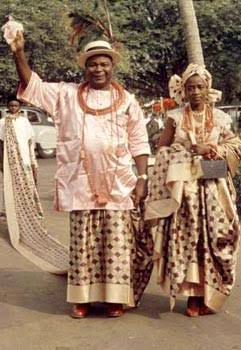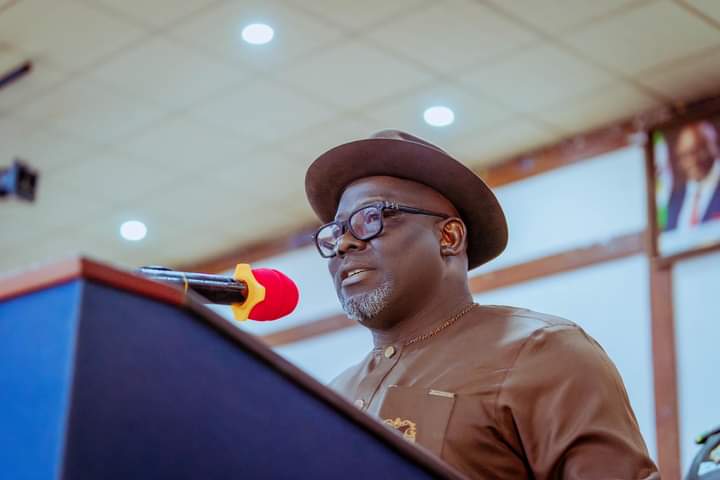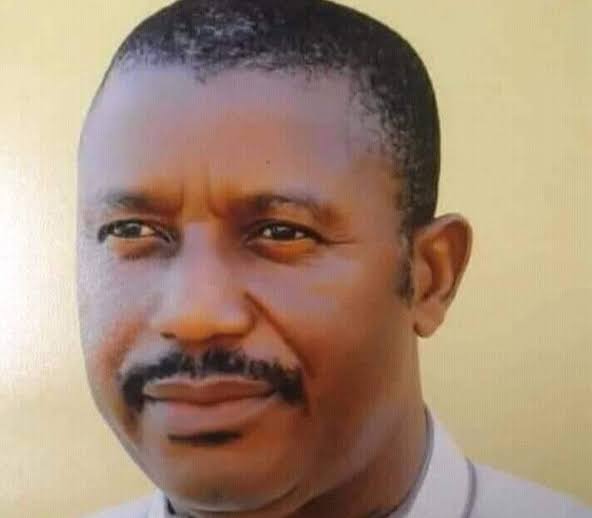Special Features
Festus Okotie-Eboh and the burden of a minority tribe


By Sunny Ikhioya
When the late Abraham Lincoln described democracy as “government of the people, by the people and for the people“, he was referring to a government of adequate representation for all classes and categories of people.
The former President of the United States of America was simply saying that the peoples voices must be heard no matter how big or small. But in these days and times, especially with regards to the Nigerian situation, people are classifying it as a government of the majority; someone even went as far as classifying it a “tyranny of the majority”.
There was a time in this country that we had two minority individuals at the controlling levers of the two major political parties. We had Chief Festus Okotie-Eboh of the National Council of Nigeria and the Cameroons, NCNC, and Alfred Rewane of the Action Group, AG, both well respected at the hierarchy and both from the minority Itsekiri ethnic group.
Today, the whole of Delta State does not have a substantive ministerial representation; what we have is a minister of state. How things have changed! A people that forget their heroes will always lack direction. We once boasted of Chief Okotie-Eboh, the man who established the Central Bank of Nigeria, supervised the establishment of the Nigerian Stock Exchange, set up the Nigerian Security and Minting Company and introduced the first set of Nigerian currencies.
He was the driving force of the African Development Bank which was founded in 1964, and one of the foremost African business entrepreneurs. A transformational leader in politics, he was also the first African Chiropodist and most flamboyant politician of his time; he was well respected within and outside Nigeria.
He was not only one of those that were callously murdered by coupists in January 1966, he was, arguably, one of the greatest Nigerians that ever lived. But this great pride of the Niger Delta must be turning in his grave, crying for justice. Chief Okotie-Eboh was not only big in body frame, he was also very big in financial resources and left indelible footprints in Nigeria’s political and business history.It is the right time for the country and its people to give him the recognition that he deserves, especially when it has been established that the coup that terminated his life was a needless one.
It is on record that he and the late Sir Louis Ojukwu – father of Chukwuemeka Odumegwu Ojukwu – were the major financiers of the NCNC party, the ruling party in those days. You cannot wish such a man away. He was instrumental to the siting of Koko Port, Nigeria’s first deep sea/natural port, requiring no dredging.
He facilitated the establishment of Gulf Oil, now Chevron, in Escravos-Ogidigben, its present base location, and was also not left out in educational developments. Many primary and secondary schools were built with his hard-earned money.
When you look at the record of Chief Okotie-Eboh in that short span of his lifetime, you will begin to wonder what our modern day politicians are doing with the opportunities that have been given to them.
Government, and indeed all Nigerians, must give official recognition to Chief Okotie-Eboh, both at the federal and state levels.
We all know that if he was from one of the major ethnic groups, he would have been recognised a long time ago, because even those that came into politics as poor men and died as very rich men are being idolised and worshipped in the country.
Why should a man of Okotie-Eboh’s calibre, who came with his resources be forgotten? It is the dilemma of the minority and we must correct this in the way we play our politics of today.
We have read history and we know those that have been indicted of corruption by various tribunals and commission of inquiry, ironically these ones have become heroes in our land yet a man of repute and great integrity is left to be rubbished in the dustbin of history, because a few people who had the media in their control, for malicious reasons, thought so and this is wrong.
Those of us from the minority ethnic groups must fight to remove such tag. The other day, his Royal Majesty Ogiame Atuwatse 111, the Olu of Warri kingdom, visited President Muhammadu Buhari and one of the requests he made is “immortalising of the first finance minister of the country Chief Festus Okotie-Eboh.”
For the Olu of Warri to recognise the contributions of Okotie-Eboh to Nigeria, despite the historical antecedents of the two families, shows the nobility of the Olu’s personality.
For now, both Edo and Delta states must think of what befitting programmes they will put in place in honour of Chief Okotie-Eboh, while the Federal Government should be looking at a bigger picture.
The Central Bank, Nigeria Stock Exchange, Nigeria Printing and Minting Company and many other federal institutions have his imprints; he must be given recognition now.
*Ikhioya wrote via www.southsouthecho.com

